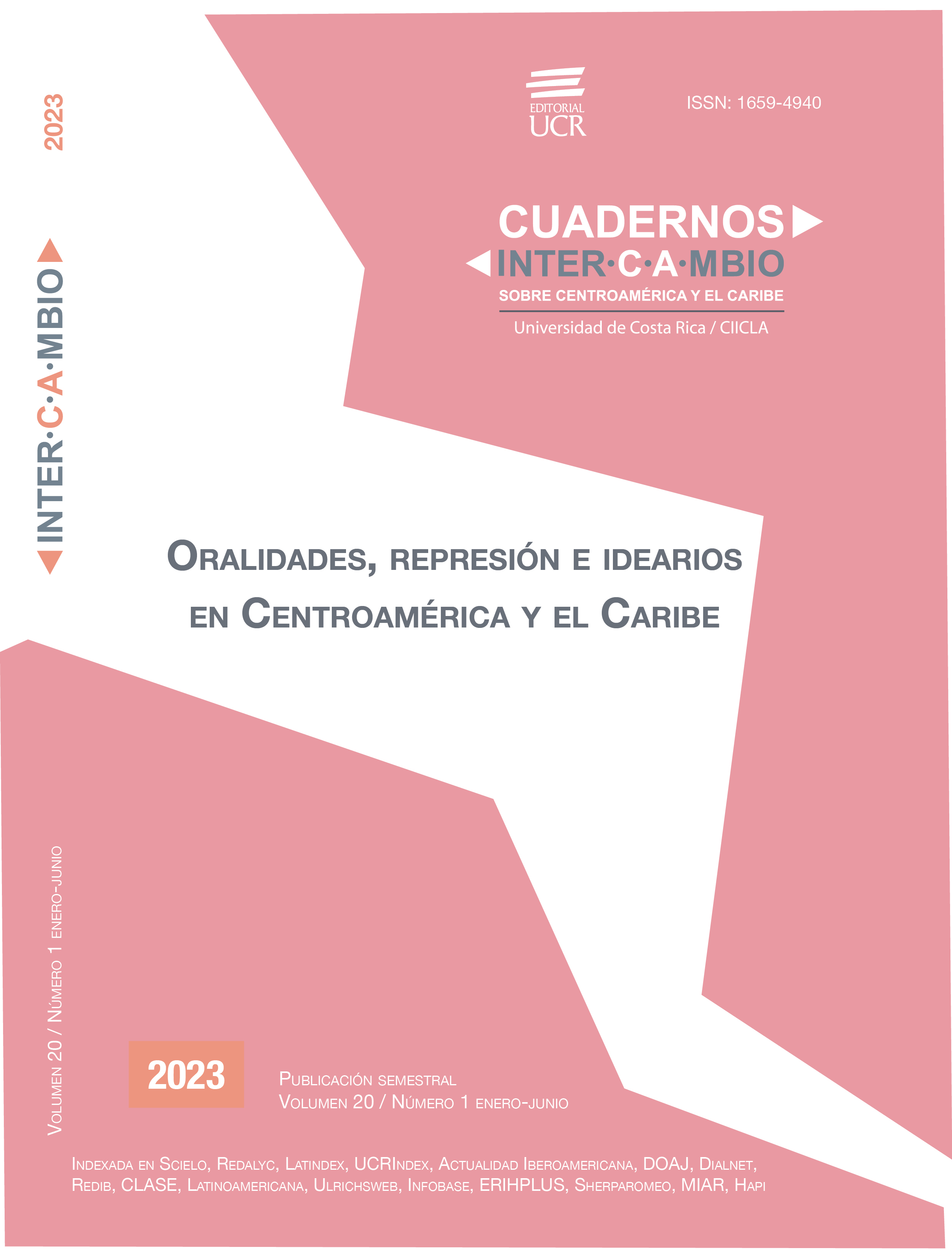Abstract
This article analyzes the novel The Dragon can’t Dance, written by Trinidadian writer Earl Lovelace. It focuses upon a concept of paramount importance in the history of Insular Caribbean: the concept of Caribbeanness. The article will explore the relational dynamic in the society of Calvary Hill and, complementing the work with bibliography from important authors in the history of Caribbean identity configuration, it will analyze the consequences that the process of European colonization had upon the construction of a Caribbean identity, taking as its articulating axis the racial question and finally concluding that the uprooting is a factor of which all the characters in the novel are victims, making the consolidation of a shared identity difficult.
References
Benítez Rojo, Antonio. (1989). La isla que se repite: el Caribe y la perspectiva posmoderna. Ediciones del norte.
Cesaire, Aimé. (2006). Discurso sobre el colonialismo. Akal.
Fanon, Frantz. (1973). Piel negra, máscaras blancas. Abraxas.
Fernández Retamar, Roberto. (1998). Todo Caliban. Ediciones Universidad de Concepción.
Ferro, Marc. (2005). El Libro Negro del Colonialismo. Siglos XVI al XXI: del exterminio al arrepentimiento. La Esfera de los Libros, S.L.
Glissant, Édouard. (2010). El Discurso Antillano. Fondo Editorial Casa de las Américas.
Glissant, Édouard. (2017). Poética de la Relación. Universidad Nacional de Quilmes.
López, Laura. (1996). Literatura francófona: II - América. FCE.
Lovelace, Earl. (1979). The Dragon can’t Dance. Persea Books.
Quijano, Aníbal. (2000). Colonialidad del poder, eurocentrismo y América Latina. En Edgardo Lander (Ed.), La Colonialidad del Saber: eurocentrismo y ciencias sociales. Perspectivas latinoamericanas (pp. 201-246). Ediciones FACES/UCV.
Quijano, Aníbal. (2014). Colonialidad del poder y clasificación social. En Cuestiones y horizontes: de la dependencia histórico-estructural a la colonialidad/descolonialidad del poder. CLACSO.
Ramchand, Kenneth. (1988). Why The Dragon Can’t Dance: an examination of Indian-African Relations in Lovelace’s “THE DRAGON CAN’T DANCE”. Journal of West Indian Literature, 2(2), 1-14. http://www.jstor.org/stable/23019600
Rojas, Reinaldo. (2021). El Caribe, una mirada histórica y geopolítica. https://jesuitas.lat/noticias/14-nivel-1/6174-ponencia-el-caribe-una-mirada-historica-y-geopolitica
Segato, Rita. (2015). La crítica de la colonialidad en ocho ensayos. Y una antropología por demanda. Prometeo Libros.
The Commonwealth. (s.f.). Member countries. https://thecommonwealth.org/our-member-countries
Comments

This work is licensed under a Creative Commons Attribution-NonCommercial-NoDerivatives 3.0 Unported License.
Copyright (c) 2022 Cuadernos Inter.c.a.mbio sobre Centroamérica y el Caribe


